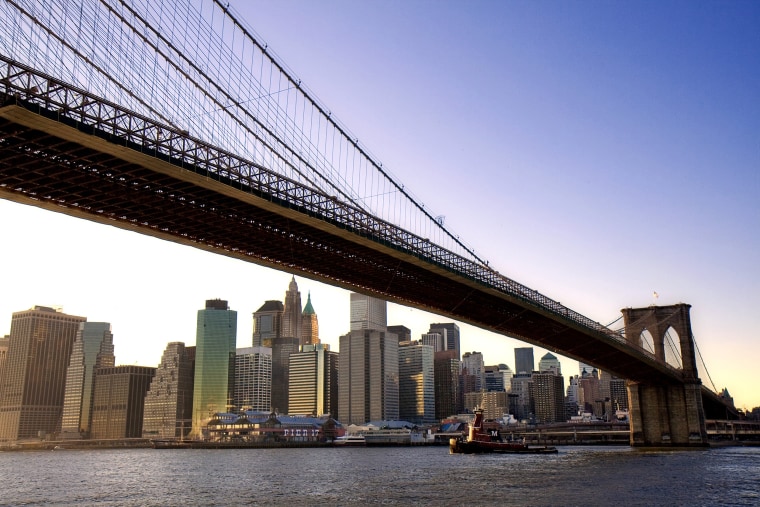The United States is overdue for a committed and ambitious effort to improve the nation's infrastructure. Barack Obama unveiled a worthwhile plan during his presidency, but it faced unyielding Republican opposition. Donald Trump expressed some interest in the issue, too, but never followed through with a credible proposal.
It's against this backdrop that the American Society of Civil Engineers issued a 170-page report yesterday, painting an ugly picture. Reuters reported:
The United States faces a $2.59 trillion shortfall in infrastructure needs that requires a massive jump in government spending to address crumbling roads, bridges and other programs, according to an assessment by an engineers group issued on Wednesday.... "We risk significant economic losses, higher costs to consumers, businesses and manufacturers — and our quality of life — if we don't act urgently," said ASCE Executive Director Thomas Smith in a statement.
The quadrennial report includes grades for 17 categories, and not surprisingly, the United States fared better in some areas than others. But in 11 of the 17 categories, the country earned D ratings: "aviation, dams, hazardous waste, inland waterways, levees, public parks, roads, schools, stormwater, transit, and wastewater."
According to the American Society of Civil Engineers, a D rating indicates "significant deterioration" with a "strong risk of failure."
Transportation Secretary Pete Buttigieg said the report card documents "what Americans already know: failure to fully invest in our infrastructure over the years is now catching up to us. Consequences are appearing nationwide, in the form of dangerously degraded roads, bridges, and other assets."
He went on to tell the Associated Press, "A generation of disinvestment is catching up to us."
The next question, of course, is what current officials are going to do about it. While much of Congress' current focus is on the COVID relief package, the White House has also been quietly laying the groundwork (no pun intended) for a major infrastructure initiative, and President Biden is reportedly set to meet with lawmakers tomorrow for a second round of talks about a possible proposal.
They'll need to aim big: the American Society of Civil Engineers' report endorsed a "big and bold" approach, that would cost $5.9 trillion over the next decade.
Hanging overhead, of course, is an inevitable Senate Republican filibuster, but let's not forget that when Senate Majority Leader Chuck Schumer (D-N.Y.) sat down with Rachel in late January, the New York Democrat pointed to a way around GOP opposition.
Referring to the budget reconciliation process, Schumer said, "We get two reconciliation motions: one for COVID and then one probably for Build It Back Better."
And while Sen. Joe Manchin (D-W.Va.) is in a position to derail a variety of key progressive priorities, Congress' most conservative Democrat appears to be fully on board with "major" investments in infrastructure.
Watch this space.
